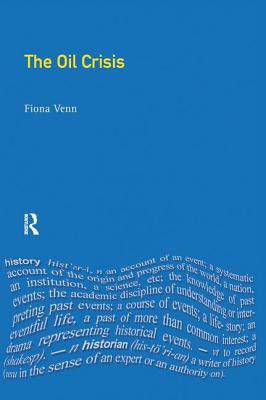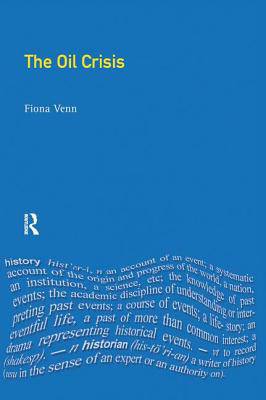
- Afhalen na 1 uur in een winkel met voorraad
- Gratis thuislevering in België vanaf € 30
- Ruim aanbod met 7 miljoen producten
- Afhalen na 1 uur in een winkel met voorraad
- Gratis thuislevering in België vanaf € 30
- Ruim aanbod met 7 miljoen producten
Zoeken
Omschrijving
In October 1973 two crises - one economic, one political - intersected, with dramatic and long term consequences for international relations. On 6 October, Egypt and Syria launched an attack on Israel, and within a few days the major Arab oil producers announced their support by use of the 'oil weapon', including a boycott of supplies for countries friendly to Israel and a programme of production cuts. This was followed by the unilateral declaration of a steep increase in the price of oil by the Organization of Petroleum Exporting Countries (OPEC). The result was international panic and world recession. Crude oil prices soared by a massive fourfold in just three months. The West's vulnerability had been exposed: it was being held hostage to oil. Yet, despite efforts to address this dependence on oil imports in following years, the 1979 Iranian Revolution triggered a further upward surge in prices. Today, the importance of oil remains at the forefront of the West's foreign policy calculations in the Middle East. In this fascinating and timely new look at the oil crisis, Fiona Venn examines these issues and the more unexpected effects of the crisis. She asks just how much really changed in the economic balance of power. Most importantly she argues that OPEC was used as a scapegoat for the world recession, which had been already underway when the crisis detonated.
Specificaties
Betrokkenen
- Auteur(s):
- Uitgeverij:
Inhoud
- Aantal bladzijden:
- 230
- Taal:
- Engels
- Reeks:
Eigenschappen
- Productcode (EAN):
- 9781138166776
- Verschijningsdatum:
- 31/01/2017
- Uitvoering:
- Hardcover
- Formaat:
- Genaaid
- Afmetingen:
- 156 mm x 234 mm
- Gewicht:
- 503 g

Alleen bij Standaard Boekhandel
+ 549 punten op je klantenkaart van Standaard Boekhandel
Beoordelingen
We publiceren alleen reviews die voldoen aan de voorwaarden voor reviews. Bekijk onze voorwaarden voor reviews.











